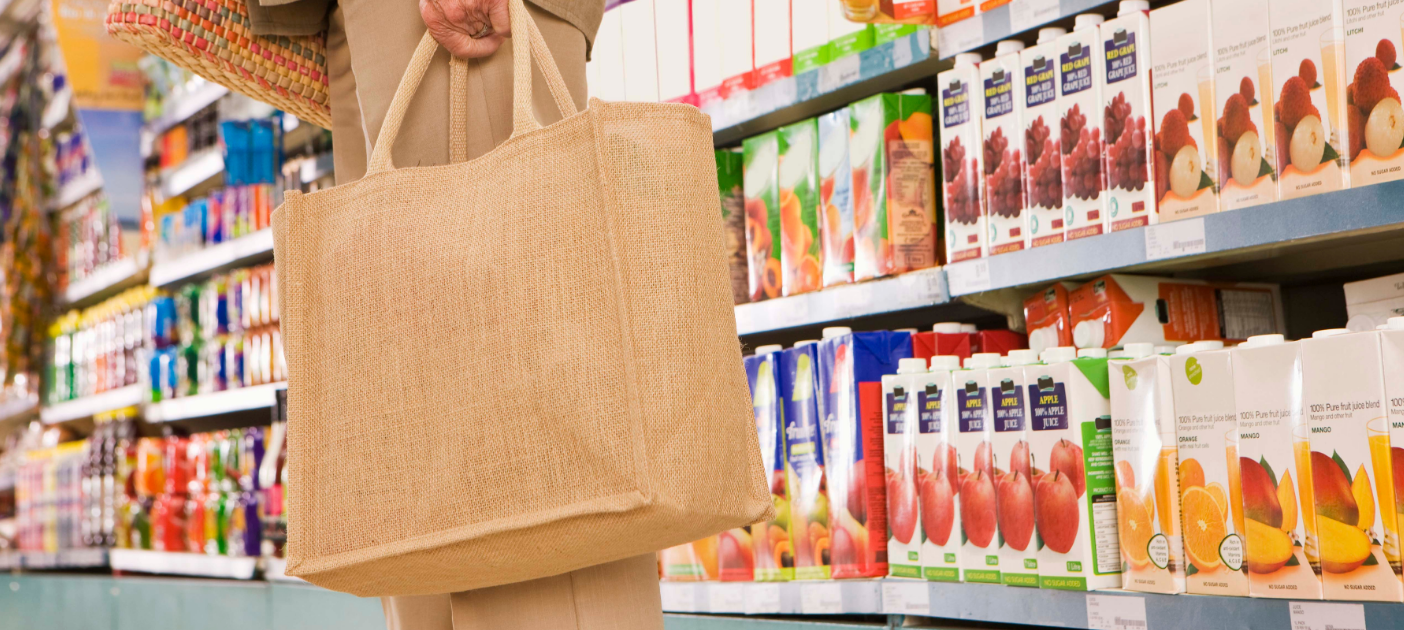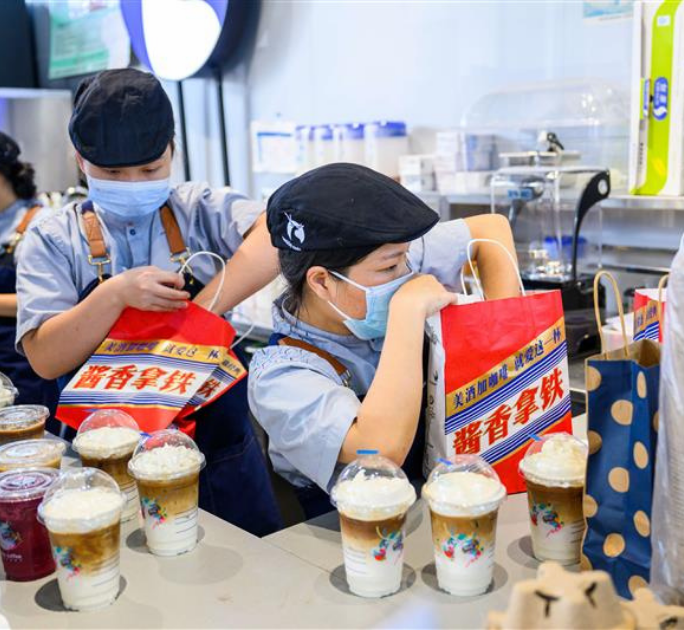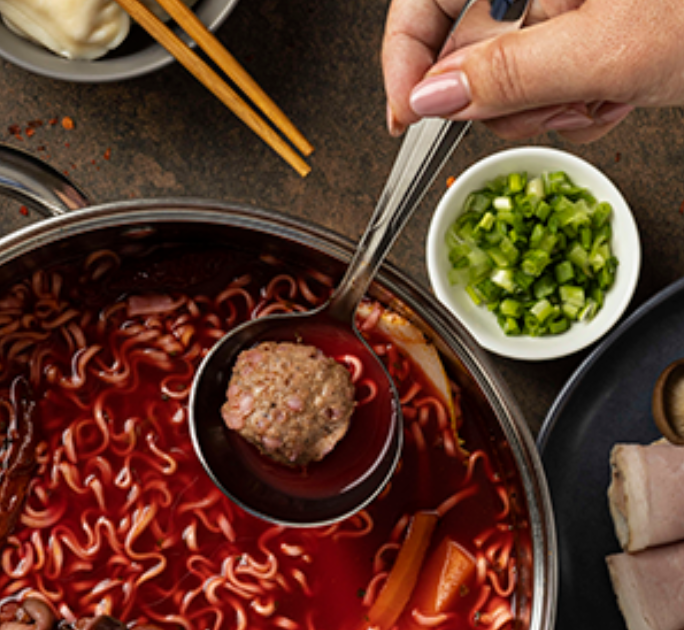Unpacking Chinese consumers’ attraction to private labels
Bastavee Barooah
Head of Food and Agribusiness, Institutional Banking Group

China’s grocery retail sector is in flux as disruptive technologies, new players and shifting consumer preferences create challenges for the industry’s traditional players and favour private labels.
Much of the current volatility in the sector dates to the early years of the COVID-19 pandemic. The health crisis accelerated the adoption of e-grocery platforms and community group-buying, and these changes have persisted beyond the pandemic, strengthened by other trends such as the popularity of warehouse clubs like Sam’s Club and Costco.
Despite declining consumer spending on discretionaries, China’s food and beverages (F&B) sector has maintained stable growth, particularly in health-focused products. As revealed in DBS Bank’s November 2024 China consumer survey, a majority of respondents intend to increase their spending on groceries over the next 12 months, prioritising high-quality fresh foods and beverages.
The rise of private labels
These macroeconomic factors have laid the groundwork for the rise of private labels – store products that are typically outsourced for manufacturing and sold under the retailer’s own brand name.
These goods are often sold at a lower price point than branded ones and are quickly carving out a niche in China’s saturated grocery retail market.
In overseas markets, particularly Europe and the US, private labels are already big business as customers grapple with heightened food prices, leading many to put greater emphasis on affordability while seeking better quality and sustainability.[1]
Private labels often offer better value for money as they directly address consumer price sensitivity, particularly during economic downturns. That could speak to consumers’ willingness to opt for cheaper brands or smaller packages of food or drink in order to pursue cost savings, as reflected in DBS’ consumer surveys.
Private labels are also favoured by retailers because they can generate customer loyalty through product differentiation, while increasing ticket sizes and enhancing customer stickiness. Studies have shown that a 5-15% increase in the price gap between private labels and national brands can lead to a 2–7% market share gain for private labels.[2]
And, despite their lower prices, private labels often boast higher gross margins than national brands due to strong bargaining power of grocery retailers to control pricing and optimize supply chains, to reduce intermediaries and marketing costs, and to offer product exclusivity for better customer loyalty.
Historically, private labels in China have been understated, with discreet packaging and low-profile shelf placements, merely supplementing national brands. As a result, private label sales have accounted for only about 5% of total industry sales of grocery retail so far.[3]
But consumer sentiment is now changing around private labels, especially amid the increasing perception of improving quality and value offered by these products. According to our 2024 China consumer surveys, 67% of respondents prefer private labels during economic uncertainty, driven by perceived quality, promotions and discounts. Additionally, 71% of consumers are looking to trade down to private labels from hypermarkets and supermarkets.
Grocery retailers are paying attention, with companies like Yonghui—in collaboration with Pangdonglai, a regional retailer with a strong private label track record—and Sun Art remodelling their stores and enhancing their offerings to meet this demand.[4] [5]As these firms increasingly turn to private labels, we can expect a boost in profits in the subsequent years.
Promising prospects for e-groceries in China
Aside from private labels, another trend rapidly reshaping China’s grocery retail sector is the continued rise of the e-grocery subsegment. According to our 2024 China surveys, although supermarkets remain the dominant channel for groceries, e-commerce has been gaining ground and is the top preference for 55% of surveyed respondents [6], with many more planning to shift online in the coming year.
Also driving this growth are technological advancements and the expansion of logistics networks,[7] as major players in China—including Walmart, Sun Art and Yonghui[8]—invest significantly in online retail channels and integrate social commerce elements.[9]
These retailers aren’t solely relying on digital either, but are bringing omnichannel experiences to their customers through their network of brick-and-mortar buildings, highlighting their advantage over digital-only upstarts.
E-groceries is still a relatively under-tapped segment. Although Chinese consumers are avid online shoppers, spending has largely been focused on certain product categories like home appliances and apparel, with groceries only comprising 20% of the domestic e-commerce market. In the medium term, if delivery and logistics services improve, we can expect significant growth opportunities for e-groceries and FMCG products.
What this means for the sector’s players
Despite ongoing challenges faced by the broader China’s consumer market, we believe the grocery sector still offers promising prospects.
Due to the large and rapidly expanding market, broadening product categories, consumers’ growing preference for private label products and e-groceries as well as supportive economic policies, the grocery sector in China presents convincing growth opportunities.
In navigating the complexities of the evolving landscape in China’s consumer market, DBS Bank's Food & Agribusiness Industry Team is committed to supporting companies in capitalising on emerging opportunities. We bring deep industry knowledge, a strong understanding of Asia’s markets and expansive network to tailor solutions that would continue to drive our clients’ success.
Contact us to find out more
[1] https://www.consultancy.eu/news/11518/many-consumers-turn-to-private-label-products-amidst-rising-grocery-prices
[2] https://sloanreview.mit.edu/article/when-do-private-labels-succeed/
[3] https://daxueconsulting.com/private-labels-in-china/
[4] https://www.kantarworldpanel.com/cn-en/news/retail-press-Q2-EN
[5] https://thebambooworks.com/brief-sun-art-returns-to-the-black-on-changing-store-mix/
[6] https://www.dbs.com.sg/corporate/insights/consumption-trends-in-china
[7] https://www.reuters.com/business/retail-consumer/chinese-e-commerce-giants-make-expensive-bets-fast-deliveries-2025-05-12/
[8] https://www.kantarworldpanel.com/cn-en/news/2025-Retail-Press-Q1-EN
[9] https://www.mckinsey.com/~/media/mckinsey/industries/retail/our%20insights/disruption%20and%20uncertainty%20the%20state%20of%20grocery%202022%20china/disruption-and-uncertainty-the-state-of-grocery-2022-china.pdf


